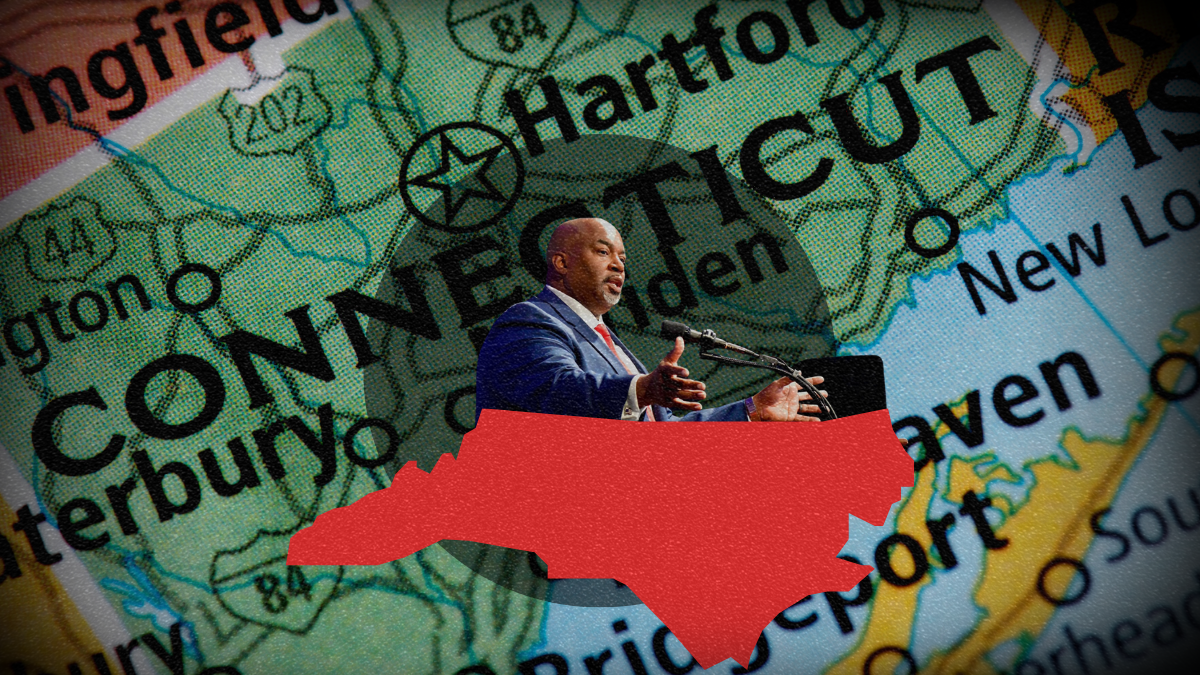Could we soon see an exodus of businesses leaving North Carolina for Connecticut? The chances are slim, but leaders in Connecticut are trying to lure companies from the Tar Heel State to the Nutmeg State, according to WRAL.
Lawmakers often work to bring new businesses to their state, for a variety of reasons. Democratic Senate leaders in Connecticut wrote to officials in the state’s Department of Economic and Community Development, encouraging them to “explore opportunities to attract businesses from the state of North Carolina to relocate to Connecticut.”
The lawmakers cited Lt. Gov. Mark Robinson’s Republican gubernatorial nomination, his desire to ban abortion, and his history of monstrous comments about the LGBTQ+ community, women and others as the reason why North Carolina businesses may be open to moving.
“We are constantly looking for chances to diversify and strengthen our state’s economy, and we believe there is a unique opportunity to reach out to businesses in North Carolina,” Connecticut Senate President Pro Tempore Martin Looney and other legislative leaders said in the letter to economic developers.
CNBC has ranked North Carolina the best in the nation for business two years in a row while under the leadership of Democratic Gov. Roy Cooper.
The Connecticut lawmakers’ letter isn’t the first time Democrats, and even some Republicans, have suggested that the current NCGOP’s right-wing extremist views could hurt the state’s ability to compete for corporate expansions and relocations.
Even the right-wing North Carolina Chamber of Commerce, which has spent millions of dollars propping up Republican candidates, said a rightward shift in the state’s Super Tuesday primary was “a startling warning of the looming threats to North Carolina’s business climate.”
“Many of the races we were watching turned for candidates that do not share our vision for North Carolina,” the chamber wrote in a newsletter, which didn’t single out Robinson by name.
Connecticut lawmakers highlighted Robinson’s claim that “God formed me” to fight against the push for LGBTQ+ rights and visibility, his belief that women can’t be leaders, whether the Holocaust was as bad as people say it was, and whether Jewish bankers secretly control the world economy.
“These remarks not only undermine the values of inclusivity and tolerance of our nation, but should also raise significant concerns about the business environment and social climate in North Carolina under potential leadership that condones or ignores such divisive rhetoric,” the Connecticut lawmakers’ letter said. “In contrast, Connecticut prides itself on its commitment to diversity, equality, and fostering an environment where businesses can thrive while upholding ethical standards and respect for all.”
Although North Carolina has very business-friendly policies, companies might rethink their investment here if employees cite Robinson’s rhetoric as a reason for leaving the company or for passing up job offers here to take jobs elsewhere.
While employers are often most focused on a state’s corporate taxes and regulations, employees want to live in states where they can feel at home, said Connecticut Senate Majority Leader Bob Duff.
“Sometimes business executives are a little reluctant to dip their toe into politics, but they have to be in a place where the employees want to be and the employees want to be where they are valued,” Duff told WRAL. “And here in Connecticut, we value all of our residents. We don’t discriminate based on who you are or who you love.”
“We’re moving forward in our state. North Carolina has the potential of really moving backwards over the next four years,” Duff added.
North Carolina Attorney General Josh Stein, Robinson’s Democratic gubernatorial opponent, already expressed his concern that Robinson could turn businesses away from the state.
“You better believe that Robinson’s extreme views would scare away business and good-paying jobs,” he said. “We’ve been down that road before here.”





